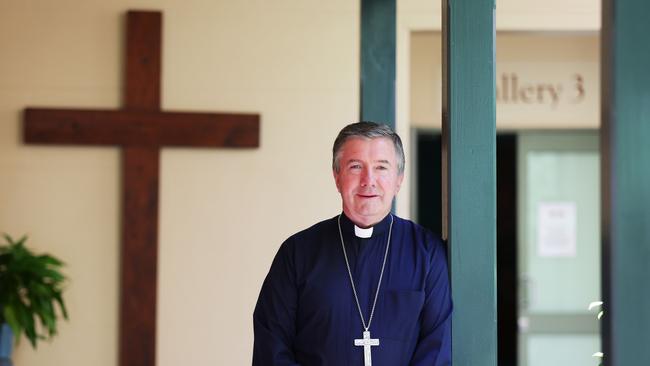Conscientious objector: Faith leaders warning on ACT’s VAD legislation
Catholic Archbishop Christopher Prowse has warned the ACT’s proposed assisted suicide laws will not provide adequate protections to conscientious objectors.

Canberra and Goulburn Catholic Archbishop Christopher Prowse has warned that the ACT’s proposed assisted suicide laws will not provide adequate protections to conscientious objectors, criticising the framework for undermining religious freedoms.
Archbishop Prowse has vowed that no Catholic healthcare facility will “allow or undertake any steps in the process of euthanasia”, raising concerns about the bill’s silence on the rights of faith-based facilities to opt out from facilitating access to voluntary assisted dying.
The legislation, which the Labor-Greens government introduced to the ACT parliament last month and is set to become the most liberal in the country, includes criminal offences for facilities that fail to provide access to information about VAD or transfer a patient to a facility to be assessed for the scheme.
Health practitioners who object to facilitating VAD on religious grounds will also face a criminal charge if they fail to provide a patient with contact details for an “approved care navigator service” within two days of being asked about the scheme by a patient.
In a submission to the ACT government responding to the legislation, Archbishop Prowse said it was concerning that “simply exercising one’s conscience in full is sufficient to be considered and penalised as a criminal”.
“The rights of conscience and, in our case, freedom of religion are severely constrained by the provisions of this bill as it stands,” he said.
The Anglican Diocese of Canberra and Goulburn has also raised concerns about the draft legislation’s eligibility criteria, including not requiring terminally ill patients to have a predicted six to 12 months to live, as is the case in other jurisdictions.
“In practice, this would seem to allow for a situation of eligibility by diagnosis rather than eligibility by assessment whereby eligibility is determined by the existence of a particular condition rather than by the particular course it is taking in the life of an individual,” its submission said.
Oncologist Cameron McLaren, the inaugural president of Voluntary Assisted Dying Australia and New Zealand, said the ACT’s provisions around conscientious objectors was consistent with “the newest iterations of VAD legislation” in other states by including penalties for health workers who didn’t fulfil their reporting obligations.
He said he broadly supported the conscientious objector provisions in the legislation, arguing that institutions with moral objections also tended to invest in palliative care.
Dr McLaren has called on the ACT government to more clearly define its intentions surrounding life expectancy, noting that the legislation’s requirement that a patient be in the “last stages of their life” to access the scheme was broad, in VADANZ’s submission to the ACT government. “This wording is somewhat vague and open to wide interpretation,” the submission said.
The Australian Federal Police Association has backed the legislation in its submission, saying that VAD when applied in a “controlled manner, with the appropriate legislated safeguards in place” prevents possible suicides and the ensuing “police investigation”.




To join the conversation, please log in. Don't have an account? Register
Join the conversation, you are commenting as Logout